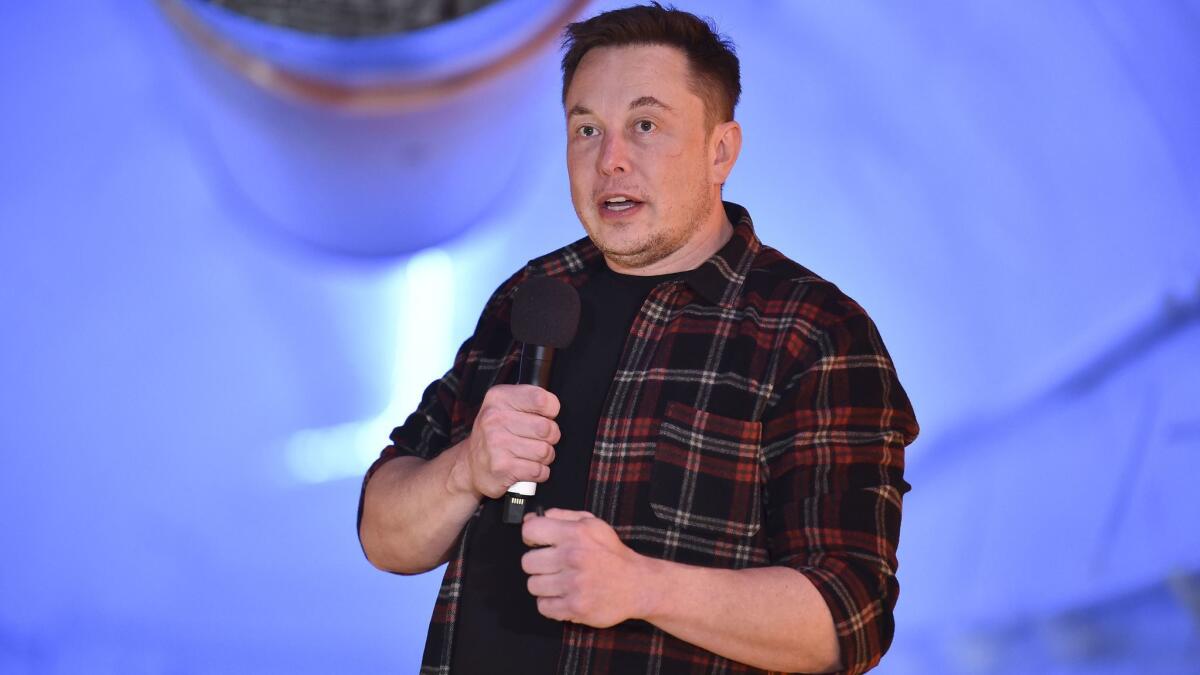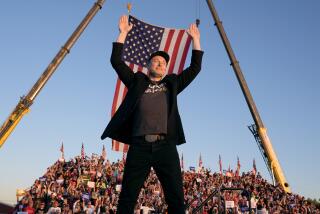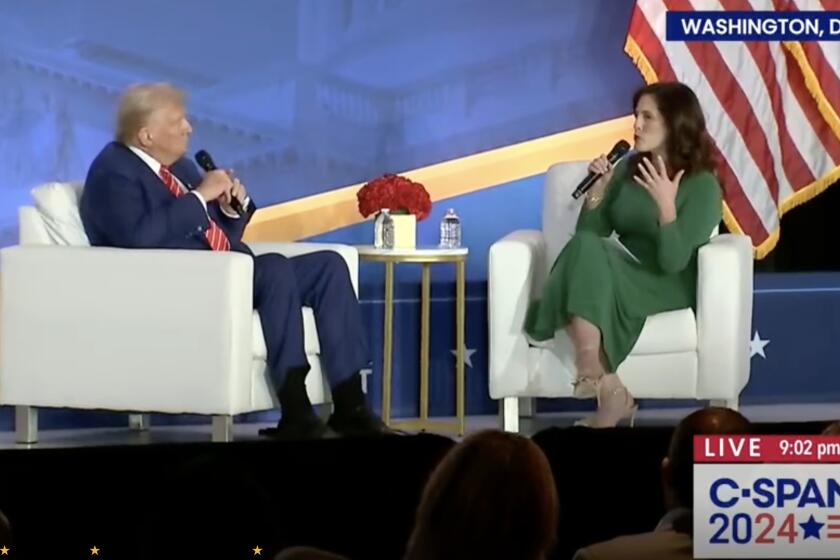Elon Musk says ‘pedo’ insults aimed at cave-rescue volunteer are protected by 1st Amendment

Tech entrepreneur Elon Musk has moved to have a defamation lawsuit against him dismissed, arguing that his insults aimed at a Thai-cave rescue volunteer whom he called a “pedo” and a “child rapist” were merely opinions and protected by the 1st Amendment.
“This motion boils down to a single question,” his lawyers wrote in a motion to dismiss, filed Wednesday. “Would a reasonable reader believe that Musk’s statements were supported by objective facts or were instead ‘non-actionable opinion’?”
In September, Vernon Unsworth, an experienced cave explorer who was part of an international effort to rescue a boys soccer team trapped in a sunken cave in northern Thailand, sued Musk, the chief executive of Tesla Inc. and SpaceX, alleging defamation. Unsworth seeks compensation for the “worldwide damage” he suffered after Musk attacked him on Twitter, broadcasting baseless claims about Unsworth to Musk’s more than 22 million followers on the social network.
Musk’s legal team argued that his insults toward Unsworth are protected by the Constitution. “The public knew from the outset that Musk’s insults were not intended to be statements of fact,” the motion said.
“Here, the reasonable reader would not have believed that Musk — without having ever met Unsworth, in the midst of a schoolyard spat on social media, and from 8,000 miles afar — was conveying that he was in possession of private knowledge that Unsworth was attracted to children or engaged in sex acts with children.”
Musk’s lawyers argued that his “over-the-top” insults were not fueled by actual firsthand knowledge of Unsworth and that, even if they were offensive, they were opinions.
According to the motion, reasonable readers would be able to tell the difference between Musk’s “off-the-cuff tweets and e-mails” and other formats in which factual statements about child abuse are conveyed, such as a newspaper expose or a court document. Musk’s lawyers also characterized Twitter as “a social networking website infamous for invective and hyperbole” and a “rough and tumble” platform.
Musk did not respond to a request for comment through his lawyers.
The events leading up to Musk’s legal dispute began in June, as the harrowing rescue effort in Thailand was underway. As the operation gained global media attention, Musk pledged his help. He said he would lead a team of engineers to build a mini-submarine that could squeeze through the cavern’s tight passageways and bring the boys to safety. But Musk’s plan drew skepticism.
After the successful rescue in July, which did not involve Musk’s mini-submarine, CNN broadcast an interview in which Unsworth described Musk’s plan as a “PR stunt” that had “absolutely no chance of working” and that Musk could “stick his submarine where it hurts.”
Musk retaliated. He said on Twitter two days later that Unsworth was a pedophile and that he would make a video of the mini-submarine proving Unsworth wrong: “Sorry pedo guy, you really did ask for it,” Musk tweeted. Musk later apologized, but his remarks against Unsworth continued. In emails to BuzzFeed in August, Musk said Unsworth was a “child rapist” who had moved to Thailand for a 12-year-old bride.
Lin Wood, a lawyer representing Unsworth, said in a statement Thursday, “Mr. Musk does not let the facts or well-established law get in the way of his novel but inaccurate contentions in his motion to dismiss.”
“Furthermore,” Wood added, “I entirely reject Mr. Musk’s frivolous contention that all statements published on Twitter or other social media are protected speech.”
Shaban writes for the Washington Post.
More to Read
Inside the business of entertainment
The Wide Shot brings you news, analysis and insights on everything from streaming wars to production — and what it all means for the future.
You may occasionally receive promotional content from the Los Angeles Times.










